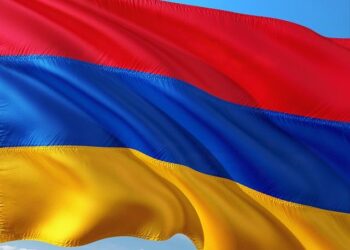In a significant development that underscores the widening geopolitical fault lines in the South Caucasus, Russia has intensified its efforts to interfere in Armenia’s upcoming early elections, amid Yerevan’s accelerating shift toward closer ties with Western powers. According to the Foundation for Defense of Democracies, Moscow’s escalating campaign aims to undermine pro-Western factions and preserve its longstanding influence in the strategically crucial region. This heightened interference reflects Moscow’s growing alarm over Armenia’s realignment, which threatens to alter the balance of power and deepen the rivalry between Russia and the West in a key post-Soviet state.
Russia Intensifies Covert Election Tactics to Undermine Armenia’s Pro-Western Shift
Recent intelligence reports reveal a marked increase in clandestine operations orchestrated by Moscow aimed at destabilizing Armenia’s political landscape ahead of upcoming elections. Leveraging cyber warfare, disinformation campaigns, and covert financial backing, Russian operatives are actively working to erode public trust in Armenia’s pro-Western government. These interference tactics are designed to amplify nationalist sentiments and revive skepticism toward deeper integration with European and transatlantic institutions.
Key methods identified include:
- Covert social media manipulation to spread divisive narratives
- Funding of fringe political groups opposing Western alliances
- Hack-and-leak operations targeting government officials
- Use of proxy actors to foment civil unrest and electoral fraud accusations
| Interference Activity | Targeted Impact | Estimated Timeline |
|---|---|---|
| Social Media Disinformation | Polarizing public opinion | Ongoing since Q1 2024 |
| Financial Aid to Opposition | Strengthening anti-Western factions | Initiated Q2 2024 |
| Cyber-attacks on Institutions | Compromising key government systems | Escalated in May 2024 |
Analyzing Moscow’s Strategic Motivations Amid Yerevan’s Deepening Western Integration
Russia’s strategic calculus in Armenia intensifies as Yerevan forges closer ties with Western powers, signaling an erosion of Moscow’s traditional sphere of influence in the South Caucasus. Moscow perceives Armenia’s growing engagement with NATO, the EU, and the United States not merely as geopolitical drift, but as a direct challenge to its regional predominance. In response, Russia has ramped up covert and overt efforts to influence Armenia’s political landscape, particularly targeting upcoming elections to ensure leadership more amenable to Kremlin interests.
Key dimensions of Moscow’s approach include:
- Political manipulation: Backing pro-Russian candidates and parties through disinformation campaigns and financial incentives.
- Economic leverage: Using energy dependence and trade restrictions as tools to destabilize Yerevan’s economy.
- Security threats: Provoking tensions along the Armenia-Azerbaijan border to undermine governmental credibility and stir nationalist sentiments.
| Moscow’s Tools | Purpose | Impact on Armenia |
|---|---|---|
| Disinformation Campaigns | Sway public opinion against Western alignment | Polarization and distrust in government |
| Energy Supply Control | Exert economic pressure through gas and electricity | Economic instability and political uncertainty |
| Border Provocations | Fuel nationalist rhetoric & delegitimize current leadership | Heightened security tensions and internal unrest |
Strengthening Armenia’s Democratic Resilience Recommendations for Countering Foreign Electoral Meddling
To effectively counter the growing threat of foreign electoral meddling, Armenia must adopt a multi-layered approach that reinforces the integrity of its democratic processes. Key measures include:
- Enhancing cybersecurity infrastructure around election management systems to prevent hacking and data manipulation.
- Establishing independent media oversight to combat disinformation campaigns and promote fact-based reporting.
- Strengthening legal frameworks that criminalize unauthorized foreign funding and interference in domestic political activities.
- Increasing voter awareness programs to educate citizens about the tactics and risks of electoral interference.
Additionally, collaboration with international electoral integrity organizations is vital to ensure transparency and develop rapid-response mechanisms to emerging threats. An example of a recommended coordination framework could include:
| Stakeholder | Primary Role | Key Initiative |
|---|---|---|
| Armenian Central Electoral Commission | Election oversight and integrity | Implement cybersecurity audits |
| Civil Society Organizations | Voter education and monitoring | Public awareness campaigns |
| International Partners (OSCE, EU) | Technical and advisory support | `, ` |
| Stakeholder | Primary Role | Key Initiative |
|---|---|---|
| Armenian Central Electoral Commission | Election oversight and integrity | Implement cybersecurity audits |
| Civil Society Organizations | Voter education and monitoring | The Way Forward As Armenia continues to strengthen its ties with Western institutions, Russia’s intensified efforts to influence the upcoming elections underscore the growing geopolitical contest playing out in the South Caucasus. The developments in Yerevan not only reflect the shifting regional dynamics but also highlight the broader struggle between Moscow and the West for influence over post-Soviet states. Observers will be closely watching how Armenia navigates this complex landscape in the months ahead, as the implications of these election interference attempts extend beyond the country’s borders, affecting the strategic balance across the region. ADVERTISEMENT |
















